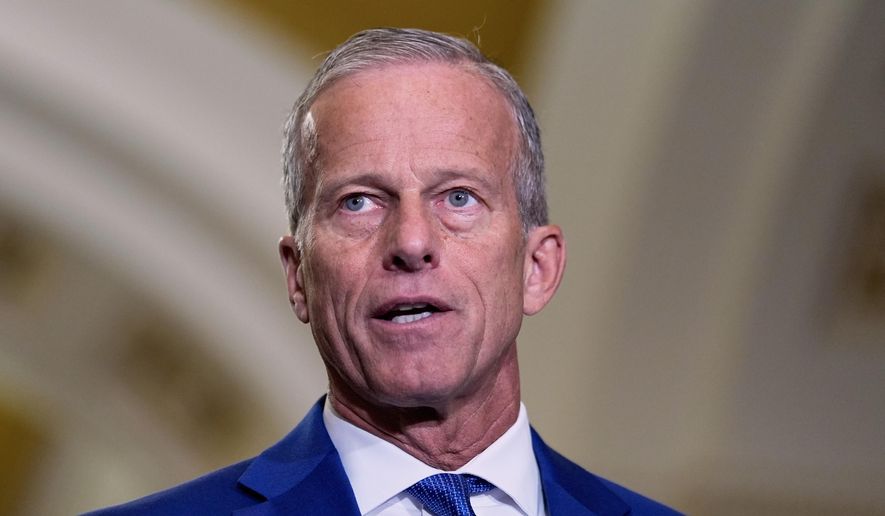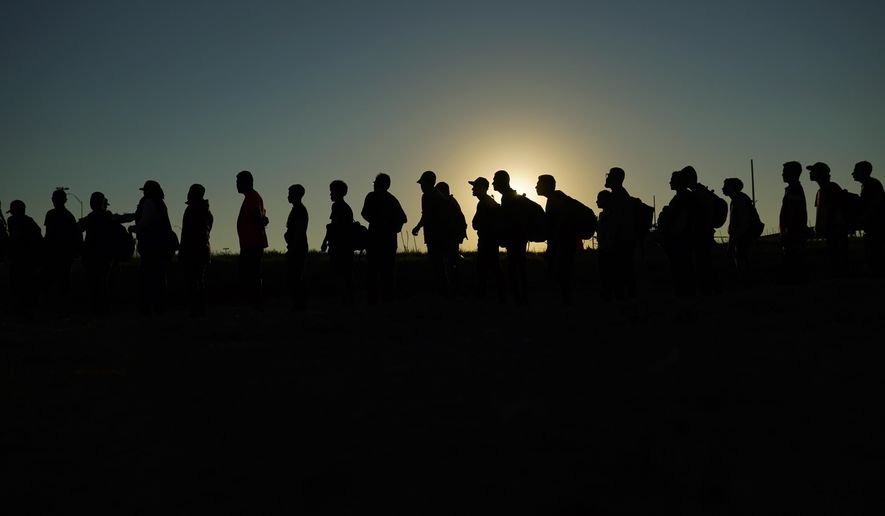Why Young Adults Are Abandoning Marriage and Kids

Sean Salai | August 7, 2025
(The Washington Times) — More young people are delaying marriage and childbirth as they prioritize achieving financial independence, according to a new Census Bureau study.
The federal agency reported Tuesday that just 21% of Americans ages 25 to 34 in 2024 were working, married, had children and had moved out of their parents’ homes.
That’s a sharp drop from the 48% of people in that age group who reported achieving these four traditional milestones of adulthood in 1975.
The study found that 28% of young adults lived away from their parents and participated in the labor force without a spouse or children last year, making financial independence the most common adulthood milestone nowadays.
“Findings suggest that young adults today prioritize economic security over starting a family, reflecting the rising burden of housing, food, gas and other costs,” Census Bureau analysts Paul Hemez and Jonathan Vespa wrote in a summary of the study.
They cited “higher education levels, more women in the workplace, higher living costs and more varied family structures” as key social changes driving young people to delay forming families.
More than 80% of people responding to a 2017 Census Bureau survey mentioned moving out of their parents’ home and more than 90% referenced full-time employment as essential to “becoming an adult.”
The same survey found that marriage and children dropped in priority. While 80% of Americans reported marrying by age 30 in the 1970s, it now takes until age 45 for 80% to tie the knot.
Several researchers not connected with Tuesday’s study noted that it confirms years of data linking rising living costs to lower marriage rates and higher divorce rates.
“The growing difficulties young adults face in purchasing a home in metropolitan areas in the United States looks like one driver of this discouraging trend,” said Brad Wilcox, a University of Virginia sociologist who studies marriage. “It’s discouraging because our research indicates young adults are better off emotionally when they achieve one or more of these milestones.”
Recent trends in American social life have deeply divided relationship experts and policy analysts.
As U.S. birth rates plunge to record lows, conservatives have called for more public resources to support marriage and childbearing.
Others insist the changes are a necessary consequence of women relying less on marriage for financial security as more have entered the workforce.
“I would say adulthood today just looks different than it did for our parents or grandparents,” said Amber Brooks, editor of Florida-based DatingNews.com. “Women aren’t baby machines. Men aren’t pressured to be sole breadwinners.”
Brian Willoughby, a professor of family life at Brigham Young University, insisted that the changes run deeper than economics.
“Many other shifts in how young adults are thinking about and valuing dating, parenthood and marriage are also contributing to these changes,” Mr. Willoughby said. “Increased desire for personal independence, increased reliance on digital relationship alternatives like pornography and AI, and heightened burnout and anxiety with the dating process have modern young adults embracing career-focused singlehood as a primary and preferred pathway into adulthood.”
Many analysts noted that younger generations have faced less pressure to marry and have children than earlier generations, making them less in a hurry to form families.
Melinda Eitzen, a Dallas-based family and marriage attorney, said that pressure has evaporated even faster since the COVID-19 pandemic.
“I think COVID caused a delay in normal social interaction, and some people have not completely adopted the same level of social interaction that they had pre-COVID,” she said.
According to some social researchers, the Census Bureau study suggests that the time between self-defined childhood and self-defined adulthood will only continue to lengthen for young Americans.
“It reflects the rise of emerging adulthood over the last many decades, caused by and reflecting changing economic conditions, aspirations, a growing size of younger populations that are economically precarious, the importance of higher education, and changing values,” said Christian Smith, a University of Notre Dame sociologist.




















